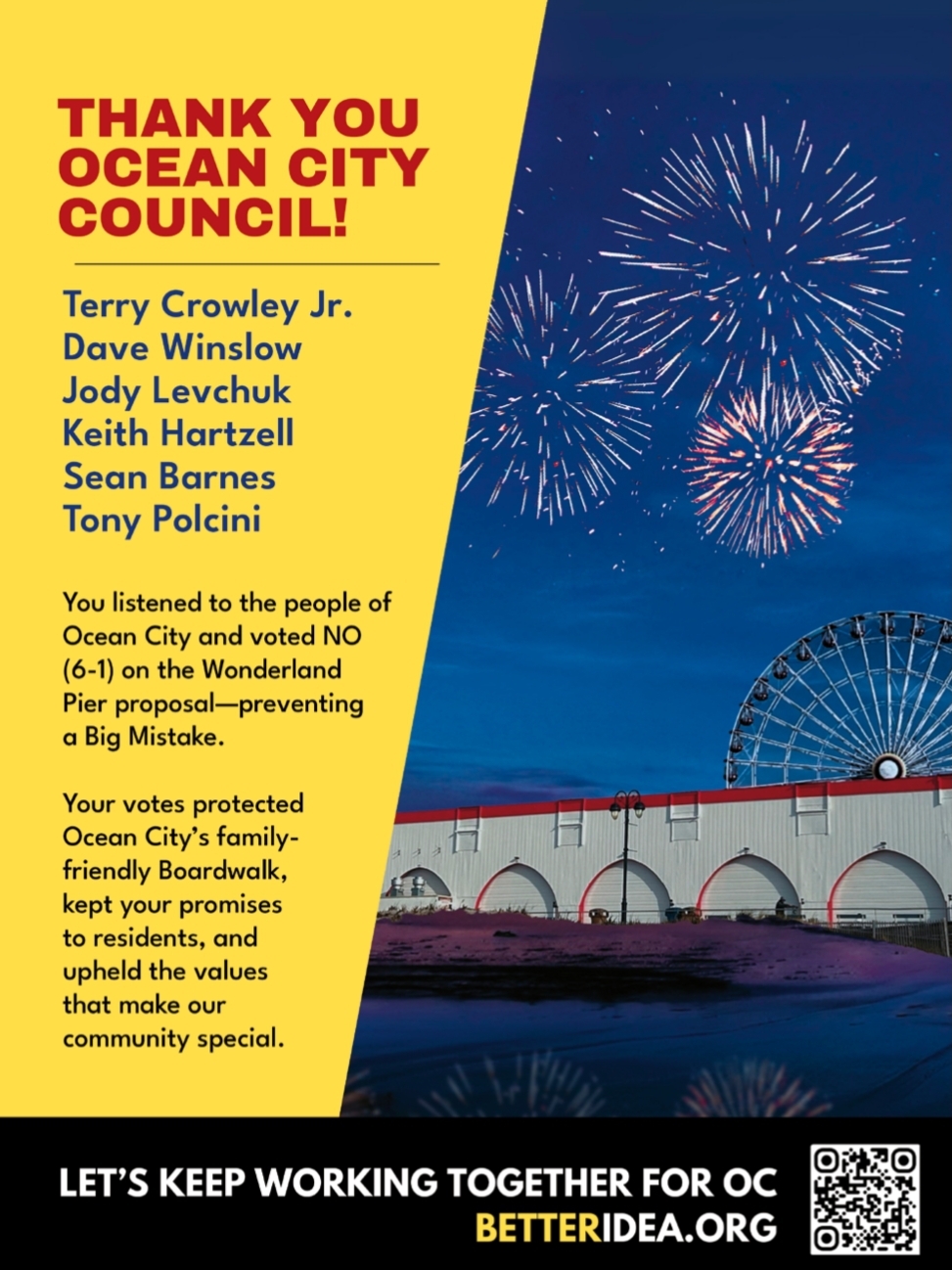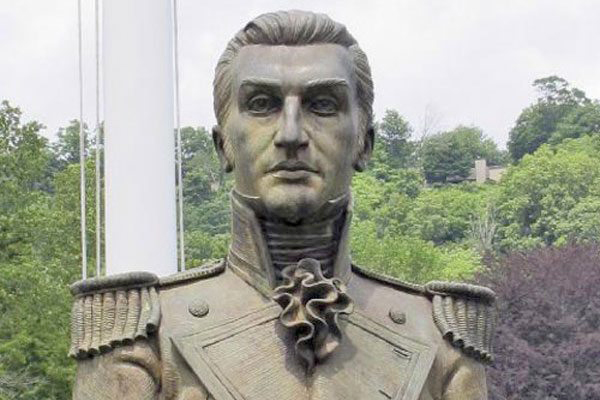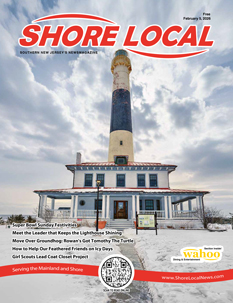On Sept. 4, 1804, Richard Somers died in Tripoli, North Africa. He was 5,000 miles away from his home in Somers Point, N.J. He is still remembered here.
There is a park named for him on Shore Road next to the library. It contains a statue of him and a monument with the names of the 12 members of the crew of his ship, the Intrepid, who died with him that night. There is also a mural on the wall of the library facing the park that tells their story.
Somers Point also has a much older monument to Richard Somers by the old New York Avenue School that was placed there in 1850.
Every Sept. 4, Liberty and Prosperity and others hold a ceremony at Richard Somers Park to remember him. We tell his story. Maryann Cannon, a Millville artist, explains the images on the mural she painted there in 2015. Molly Pugliese, Miss South Jersey 2025 sings the forgotten “Columbia, The Gem of the Ocean,” as well as the national anthem. The Amvets 911 Color Guard also participates.
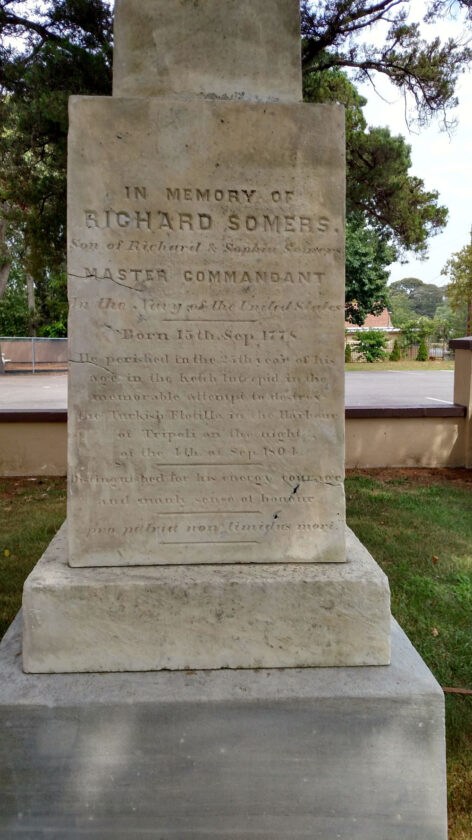
However, Richard Somers and his monuments are mostly forgotten outside of Somers Point. We need to change that. Knowing the story of Richard Somers explains why America was great in the past, and how it could be great again.
It reminds us how Quakers settled in South Jersey five years before William Penn built Philadelphia. They taught every girl and boy to read and write at an early age. They recognized equal rights for women and gave them leadership positions. They opposed war and slavery. They did not live on any land claimed by Native Americans unless the Indians agreed to sell and received a fair price. They build a society based on those ideas and they had spectacular success.
John Somers built a small log house on a hill by the Great Egg Harbor Bay in the 1680s. His son, Richard Somers’ grandfather, replaced it with the brick “Somers Mansion” that overlooks the Ocean City Bridge in Somers Point today.
Their grandchildren enjoyed the highest standards of living in the world. Gabriel Thomas, a British scholar, observed in 1698 that there were no poor, no beggars and few conflicts anywhere in in Quaker Philadelphia or South Jersey.
In 1776, these Quakers faced a moral dilemma. They opposed war. However, when British and Hessian troops invaded New Jersey, they fought to preserve their way of life. Richard Somers’ father was a colonel in the Gloucester County militia. They helped George
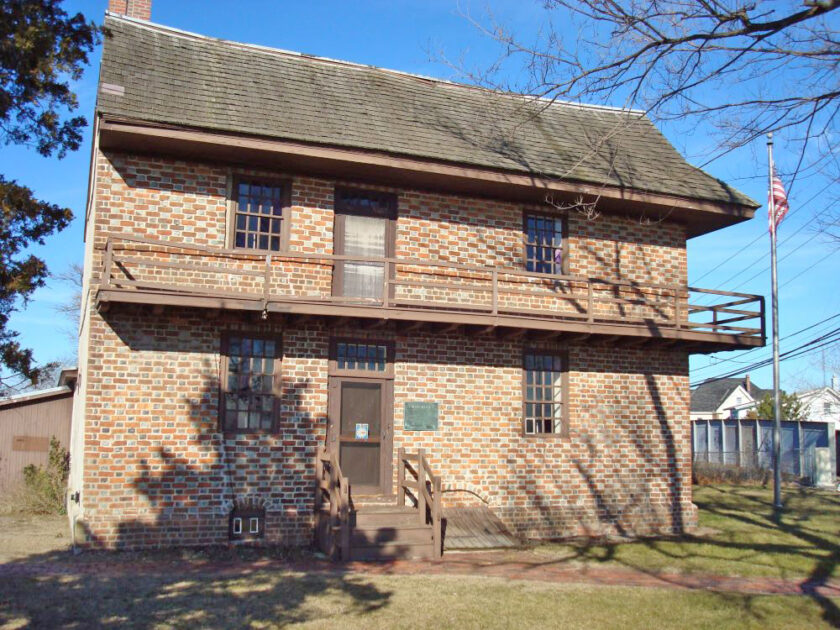
Washington win the Battle of Trenton.
When Americans won independence in 1783, we disbanded most of our army and scrapped our entire navy. We paid almost no taxes. In South Jersey, we built sturdy ships with local lumber and “bog iron.”
Our ships sailed all over the world to deliver our products and return with luxury goods.
Richard Somers was born in 1778. Like most Americans then, he completed eight grades of school when he was 16 years old. Yet, he was better educated than most college graduates today. Also, like most Americans then, he had mastered a trade and was supporting himself at age 16. He was the skipper of ships that sailed between New York and Philadelphia. Richard Somers had a promising career ahead of him.
However, as soon as America won independence in 1783, Barbary “Pirates” from North Africa attacked and seized our merchant ships and cargoes. They also sold everyone on board into slavery.
In 1786, Thomas Jefferson and John Adams, our ambassadors to France and England, asked the Ambassador from Tripoli why this was happening.
He replied, “It is written in our Koran, that all nations which had not acknowledged the Prophet were sinners, whom it was the right and duty of the faithful to plunder and enslave.
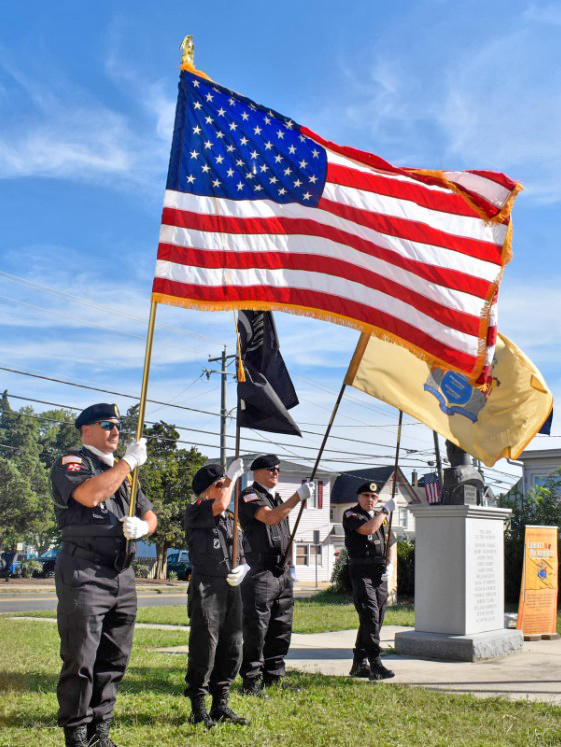
“Because America had no navy, we made treaties with the Barbary Kingdoms and paid tribute for the next 12 years. However, in 1798, Americans had enough. We said “Millions for defense, not one cent for tribute!”
We built a new navy. Richard Somers, then 20 years old, was one of the first to join. In 1802, Thomas Jefferson sent it to North Africa. In 1803, Richard Somers was put in charge of converting a merchant ship into a warship. Two months later, at age 23, Richard Somers took command of the Nautilus with 12 cannons and 103 men. He then sailed it to North Africa.
During the next year, the American navy under Commodore Edward Preble fought dozens of battles against warships from Morocco, Algiers, Tunis and Tripoli. Almost all of the ship commanders were less than 25 years old.
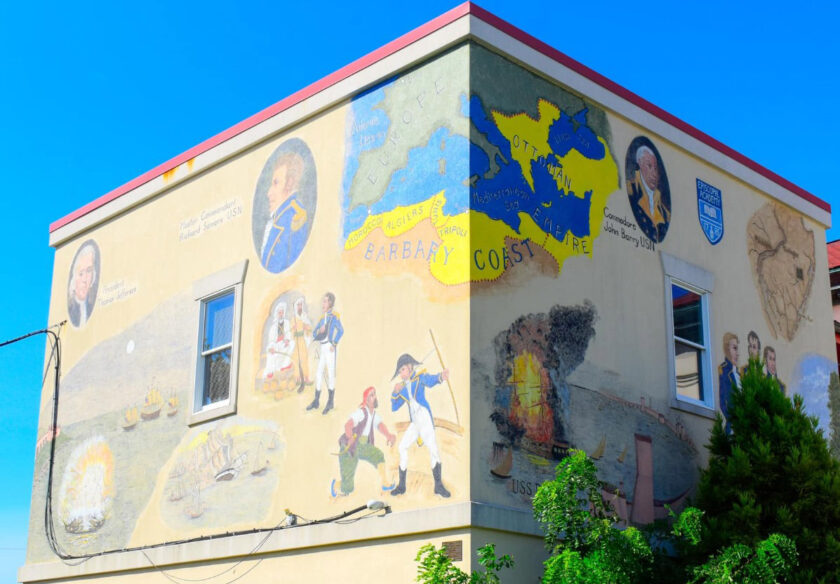
In just one year, all of the Barbary kingdoms made peace with America, except Tripoli. It decided to keep its warships safe in its harbor. It believed America would get tired of fighting an expensive war far from home and quit.
Richard Somers and his fellow officers agreed. They decided to make a daring attack inside the harbor. They had a captured Arab ship that they renamed “The Intrepid.” They then packed it with explosives and sailed it into Tripoli Harbor.
The mission failed. The Intrepid exploded prematurely without damaging the enemy fleet. Somers and all 12 of his crew were killed instantly.
However, their courage inspired the rest of the navy to keep fighting. They soon got new orders to end the war by paying tribute. However, they disobeyed those orders. They instead sent marines to the shores of Tripoli. They used some of the tribute money to hire Greek mercenaries to help them. Together, they persuaded the ruler of Tripoli to make peace with America.
At one time, this story was told in every school in America. Help us start teaching it again.


